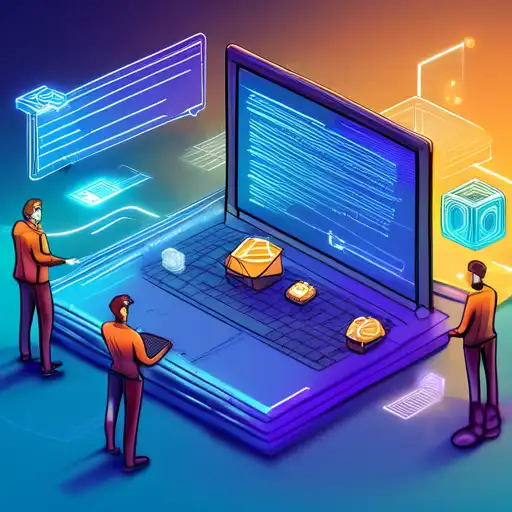Introduction to Smart Contracts
Smart contracts represent a pivotal innovation in blockchain technology, automating agreements without the need for intermediaries. These self-executing contracts with the terms of the agreement directly written into code have revolutionized how we think about trust and transactions in the digital age.
How Smart Contracts Work
At their core, smart contracts operate on a simple principle: if-then. When predetermined conditions are met, the contract executes the corresponding clause. This automation is made possible by blockchain technology, ensuring transparency, security, and immutability.
The Benefits of Smart Contracts
Smart contracts offer numerous advantages, including but not limited to:
- Reduction in transaction costs by eliminating intermediaries.
- Increased transaction speed and efficiency.
- Enhanced security through encryption and decentralization.
- Transparency and trust among parties, as all actions are recorded on the blockchain.
Applications of Smart Contracts
From finance to real estate, smart contracts are finding applications across various sectors. They are particularly transformative in:
- Automating payments and royalties in the entertainment industry.
- Streamlining supply chain management by automating agreements between parties.
- Facilitating secure and transparent voting systems.
- Enabling decentralized finance (DeFi) platforms to offer loans, insurance, and more without traditional banks.
Challenges and Considerations
Despite their potential, smart contracts are not without challenges. Issues such as code vulnerabilities, legal recognition, and scalability need to be addressed to fully realize their benefits. It's also crucial for users to understand the technology's limitations and ensure proper due diligence before engaging with smart contracts.
Future of Smart Contracts
As blockchain technology continues to evolve, so too will smart contracts. With advancements in AI and IoT, the potential for more complex and autonomous contracts is on the horizon. The integration of smart contracts into everyday transactions could redefine the global economy, making processes more efficient, secure, and transparent.
For those interested in exploring more about blockchain technology, check out our guide on blockchain basics to get started.
Conclusion
Smart contracts are a cornerstone of blockchain technology, offering a new paradigm for executing agreements. By understanding their workings, benefits, and applications, individuals and businesses can leverage this technology to streamline operations and foster trust in digital transactions. As the technology matures, we can expect smart contracts to become an integral part of our digital lives.
